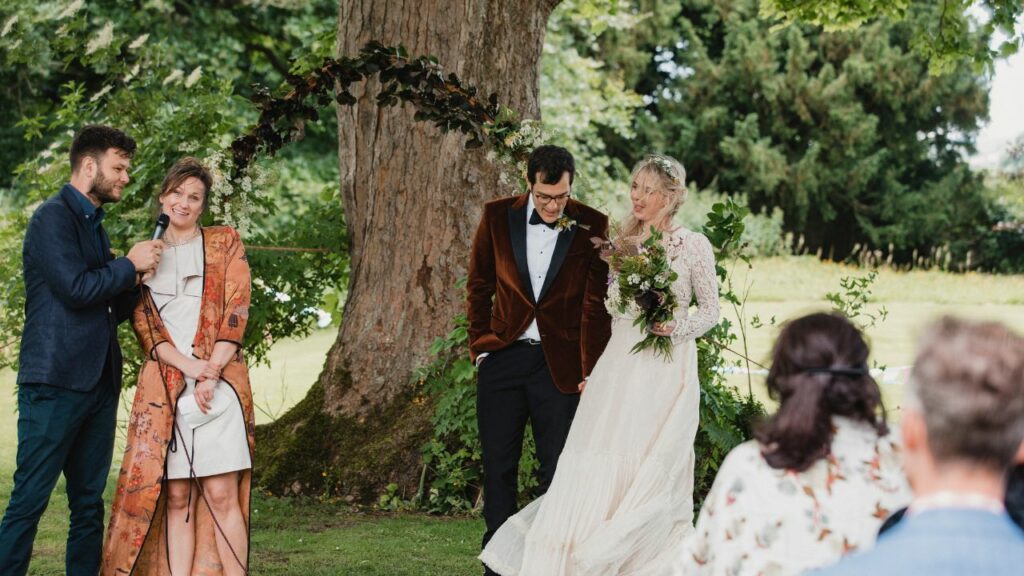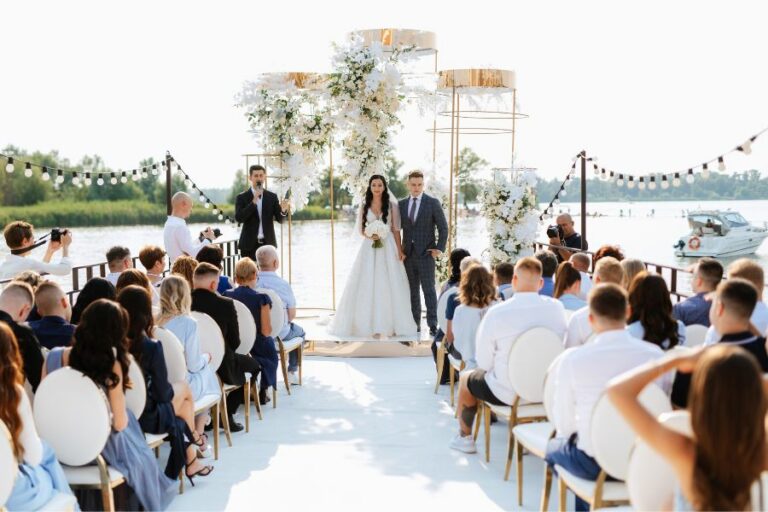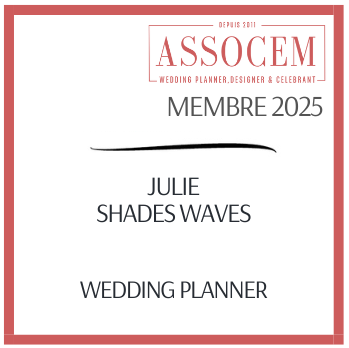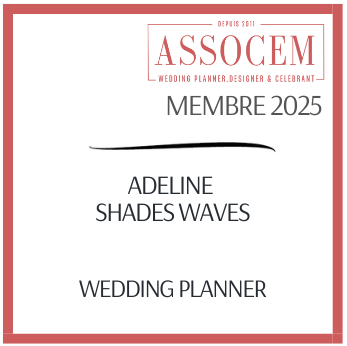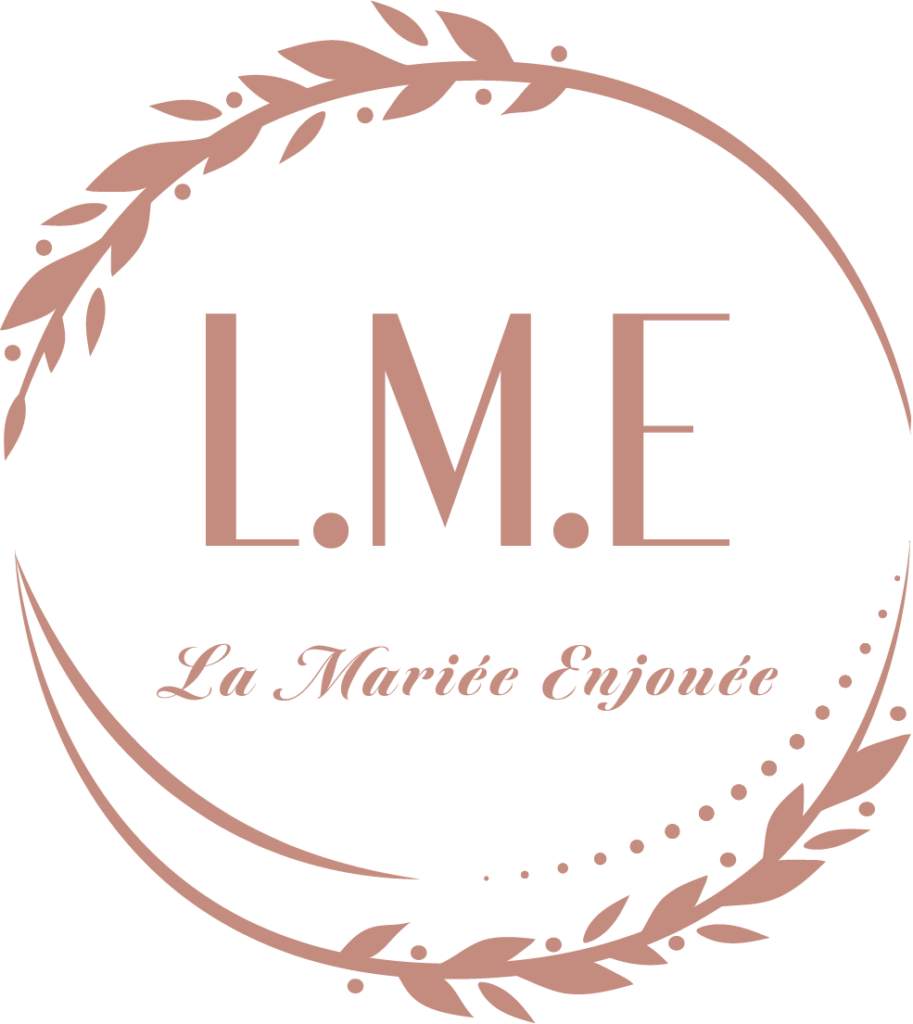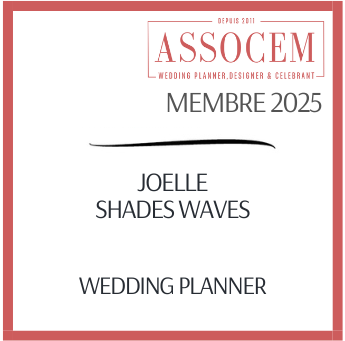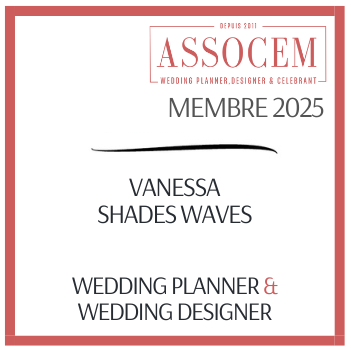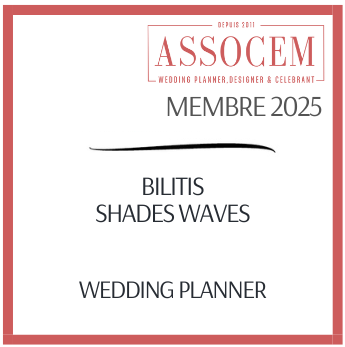Visit wedding speech is one of the most eagerly awaited and memorable moments of any ceremony. Whether delivered by the bride and groom, the witnesses or the parents, it embodies a moment of shared emotions and memories that will remain engraved in the memories of the guests. But making a successful wedding speech isn't always easy. Between managing emotions, the fear of doing it wrong and the apprehension of speaking in public, it's easy to fall into certain traps.
In this article, we will guide you through the "Do's and Don'ts for a successful wedding speech. By following these tips, you'll be able to deliver a moving, captivating and unforgettable speech, while avoiding the most common mistakes. If you're looking for more wedding planning inspiration for yourself or your loved ones, take a look at Shades Waves for valuable ideas and advice.

Do's and don'ts of the wedding speech
1. Prepare in advance
The key to a successful speech is preparation. Even if you're comfortable in public, it's essential to take the time to think about what you want to say. The first step is to get to know your audience: who will be in attendance, and what tone should you adopt to suit them? A speech for an intimate wedding among close friends will not be the same as a speech for a formal wedding in the presence of many guests.
- Make a list of ideas you'd like to talk about, including anecdotes, memories or memorable moments.
- Customize your speech. The bride and groom expect something sincere and personal, not a generic speech that could be delivered at any wedding.
- Practice out loud to get used to the way you're going to deliver your speech. This will help you adjust your tone and length.
2. Be clear and concise
A good wedding speech must be both clear and concise. Although you probably have a lot to say, it's important to keep your message structured so that it's clearly understood. Too many details or digressions can lose your audience.
Here are a few tips to help you structure your speech effectively:
- Introduction : Start with a simple, attention-grabbing opening, greeting guests and expressing your happiness at being present.
- Development Talk about specific memories, anecdotes or qualities you admire in the bride and groom. Choose a few main points and expand on them.
- Conclusion End with a positive message, like a wish for the bride and groom's future.
Remember, ideally your speech should last between 3 to 5 minutes.
3. Express your emotions with sincerity
A successful wedding speech is first and foremost a speech sincerely. Your words should reflect your deep feelings for the bride and groom. Whether it's tenderness, gratitude or joy, authenticity always touches the audience's heart.
To express your emotions accurately:
- Use anecdotes that illustrate your bond with the bride and groom.
- Speak from the heart without trying to formalize the speech too much. Guests and brides prefer authenticity to artificial perfection.
- Avoid overdoing it Expressing your emotions is essential, but be careful not to overdo it and make the moment awkward.
Don'ts of the wedding speech
1. Avoid clichés and generalities
When writing your wedding speech, avoid falling into the trap of hackneyed clichés or generalities that lack personalization. Every wedding is unique, and your speech should reflect that uniqueness.
To avoid clichés:
- Be original Instead of repeating ready-made phrases, find original ways of saying things.
- Talk about specific experiences Link your words to specific moments or traits of the bride and groom.
2. Keeping control of your emotions
It's normal and even desirable to express emotions in a wedding speech, but it's important not to let these emotions overwhelm the message you want to convey. Crying or laughing to excess can make your speech difficult to follow.
Tips for staying in control :
- Practice your speech several times to familiarize yourself with its emotional content.
- Take a deep breath before you start, and take breaks if you feel emotions rising.
3. Watch the length of your speech
A wedding speech that is too long can lose the audience's attention, especially in a setting where several speeches are planned. It's crucial to stay within your allotted time.
To manage the length of your speech :
- Plan ahead and practice : Write out your speech and time yourself during rehearsals to make sure it doesn't exceed 5 minutes.
- Prioritize content : If you have a lot to say, concentrate on the most important and significant points.
4. Avoid sensitive or controversial subjects
A wedding is a joyous celebration, and your speech should contribute to that atmosphere. Avoid mentioning topics that could cause conflict or discomfort among guests.
Tips to avoid false steps:
- Stay positive Focus on positive stories and anecdotes.
- Know your audience Avoid jokes or comments that may not be well received by certain segments of the audience.
These tips will help you navigate potential pitfalls when writing your speech, ensuring you deliver a message that is both memorable and appropriate for the occasion.
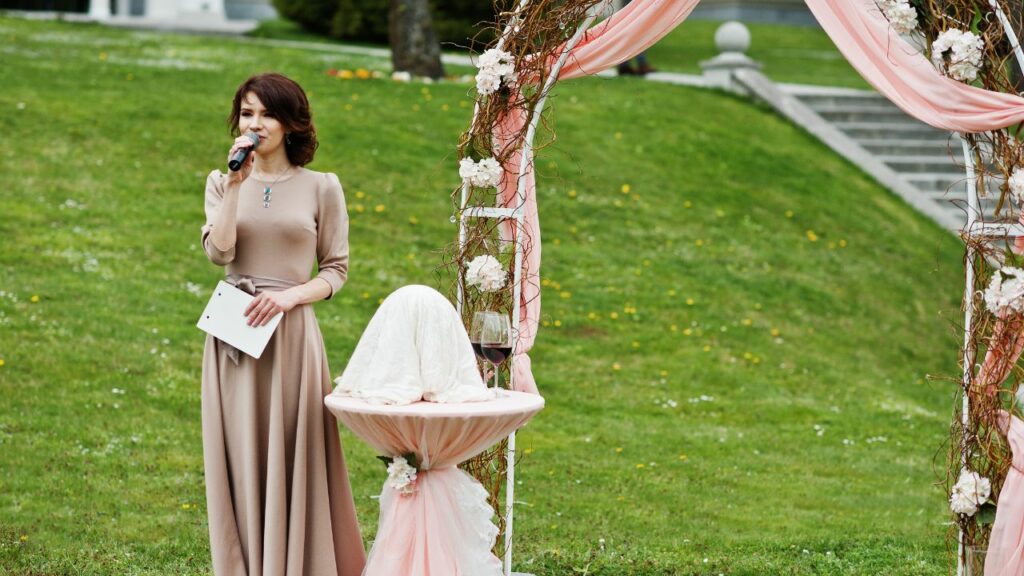
Summary table for a successful speech
| Aspect of the Speech | Do's | Don'ts |
|---|---|---|
| Preparation | - Personalize your speech. - Practice out loud. - Know your audience. |
- Avoid reading from continuous notes. - Don't improvise without preparation. |
| Contents | - Use personal anecdotes. - Be sincere and emotional. - Structure your ideas clearly. |
- Don't overload with details. - Avoid clichés and generalities. - Don't reveal too many personal details. |
| Delivery | - Maintain eye contact. - Speak clearly and calmly. - Use open body language. |
- Don't read monotonously. - Avoid speaking too quickly or too slowly. - Don't ignore the audience. |
| Emotion | - Express your feelings with authenticity. - Connect emotionally with the audience. - Vary your tone to reflect emotion. |
- Don't let emotions overwhelm your speech. - Avoid exaggerated expressions of emotion. - Don't forget to breathe between sentences. |
| Conclusion | - End with positive wishes for the bride and groom. - Briefly recap the speech. - Call for love and unity. |
- Don't conclude abruptly without recapitulating. - Avoid ending on a negative note. - Don't forget to thank the guests and the bride and groom. |

Practical tips for an unforgettable wedding speech
A memorable wedding speech isn't just about what you say, but also how you say it. Here are some practical tips to captivate your audience and leave a lasting impression.
1. Engaging the public
Audience interaction can transform a standard speech into a truly captivating moment. To achieve this:
- Use rhetorical questions Ask questions that get guests thinking or feeling the emotion of the moment.
- Include the public Mention friends or family members by name to further personalize the speech and engage the audience.
2. Use of visual aids
Sometimes, a small visual aid can greatly enhance your speech. Whether it's a projected photo, a short video or even a symbolic object:
- Choose your media wisely Make sure that any visual or physical elements add value to your speech and don't complicate it.
- Test in advance If you plan to use technology, such as a projector, make sure everything is working perfectly before the ceremony begins.
3. Telling stories
Personal stories and anecdotes are the heart of a moving speech. They make your speech lively and authentic.
- Be descriptive : Detail the moments shared with the bride and groom, allowing the audience to visualize the scene.
- Link anecdotes to wedding theme Your stories should reinforce the central message of your speech, highlighting the qualities of the bride and groom or the nature of their relationship.
4. Conclude on a positive note
Your conclusion should leave guests and bride and groom with a feeling of optimism and joy.
- Briefly summarize Summarize the key points of your speech in a few sentences.
- Offer your wishes End with heartfelt wishes for the bride and groom's future, summing up the spirit of the day.
A wedding speech should not only be well written, but also well delivered. Practice your speech several times, consider your body language, and maintain eye contact with your audience to reinforce the connection and impact of your words.
Personalizing wedding speeches by speaker
When writing a wedding speech, it's essential to consider the speaker's relationship with the bride and groom. Each role can bring a unique perspective, enriching the celebration with diverse viewpoints and emotions.
Speech by a wedding witness
- Recommended contents Light-hearted anecdotes, testimonials about the bride and groom's relationship, and sincere wishes for their future.
- Your Friendly and humorous, yet respectful.
A brother's or sister's speech
- Recommended contents : Shared childhood memories, evolving relationship with the bride and groom, and brotherly advice for the wedding.
- Your Warm and protective, with a touch of family humor.
Father of the bride's speech
- Recommended contents Emotions on the big day, pride in your daughter, welcoming your spouse into the family.
- Your Emotive and solemn, marking the significant passage.
Mother of the bride's speech
- Recommended contents Expressions of tenderness, advice on married life, and a reminder of family values.
- Your Affectionate and inspiring, with a touch of motherly wisdom.
Speeches by friends of the bride and groom
- Recommended contents Shared experiences, character traits of the bride and groom, and their impact on those around them.
- Your Playful and sincere, reflecting the shared joy of moments with friends.
Speech by the bride and groom
- Recommended contents Acknowledgements to guests and family, stories of the couple's journey, and mutual commitment.
- Your Intimate and profound, showing the couple's love and gratitude.
By adapting the content and tone of the speech to the person speaking, each speech can not only honor the bride and groom in a personal way, but also enrich the entire ceremony with diverse perspectives and emotions.

Successful wedding speeches: examples and inspiration
To help you refine your wedding speech, here are a few examples and sources of inspiration that can serve as a starting point or creative impetus for your own speech.
1. Analysis of successful speeches
Studying memorable wedding speeches can give you an idea of what works well. For example, speeches that blend humor and emotion, tell a compelling story, or effectively engage the audience are often highly appreciated.
- Highlights to watch Note how these speeches are structured, how they manage rhythm and timing, and the techniques used to captivate the audience.
- Items to borrow You can take certain turns of phrase, content ideas or even themes and adapt them to your own story and relationship with the bride and groom.
2. Sources of inspiration
Beyond wedding speeches, you can find inspiration in other forms of storytelling:
- Literature : Passages from your favorite books, poems or quotations from famous authors can add a touch of depth and culture to your speech.
- Cinema and television : Great speeches in movies or series, especially those about love and marriage, can offer unique perspectives and memorable expressions.
- Personal stories Nothing is more touching than personal anecdotes that show your unique bond with the bride and groom.
- Examples of wedding speeches
3. Concrete examples
To illustrate, here is an example of a passage that could be included in a speech:
"When I first met Laura, she had organized a little surprise party for Thomas's birthday. That evening, I saw not only the love she had for Thomas, but also the effort she put into making every moment special. It's this quality, this ability to make every little detail a precious memory, that makes their union so special."
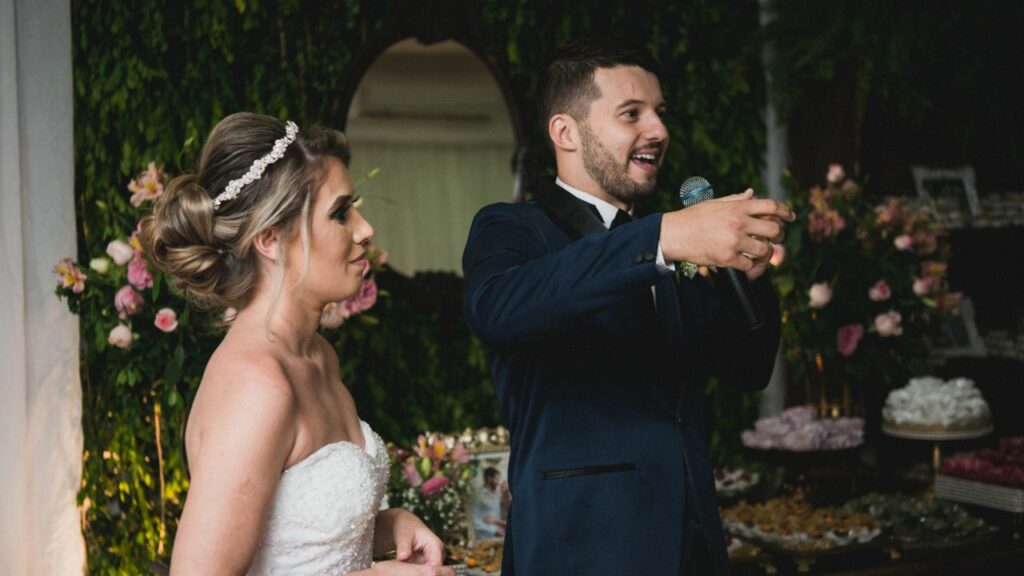
Checklist for a successful wedding speech
- Planning and preparation
- Define the purpose of the speech.
- Know your audience (age, relationship to bride and groom, culture).
- Gather relevant ideas and anecdotes.
- Write a draft of the speech.
- Ask for feedback on the draft from someone you trust.
- Speech content
- Introduce the speech in an engaging way.
- Include meaningful, personal stories or anecdotes.
- Ensure a logical progression of ideas.
- Avoid controversial or inappropriate topics.
- Include thanks to family and guests.
- Revision and fine-tuning
- Check the clarity and conciseness of the speech.
- Eliminate clichés and ready-made phrases.
- Adapt the speech to the desired length (ideally 3-5 minutes).
- Revise speech for maximum fluency.
- Convenience and delivery
- Practice the speech aloud several times.
- Record practices to improve pronunciation and rhythm.
- Practice in front of a small group to gain confidence.
- Prepare notes or memory cards as an aid.
- Speech day
- Arrive early to familiarize yourself with the area.
- Check technical equipment if necessary (microphone, projector).
- Use open and engaging body language.
- Maintain eye contact with the audience.
- Manage stage fright with breathing techniques.
- Post-Discourses
- Solicit feedback from the bride, groom and guests.
- Reflect on what went well and what needs to be improved for future speeches.
This checklist not only helps to structure a pitch effectively, but also ensures that every aspect of the process, from planning to delivery, is carefully considered for maximum impact.
Conclusion
A successful wedding speech is measured not only by the laughter or tears it provokes, but by the memories it leaves and the imprint it creates on hearts. By following these tips and drawing on the examples and inspirations suggested, you're well on your way to writing a speech that will not only mark the big day, but will be remembered by all the guests.
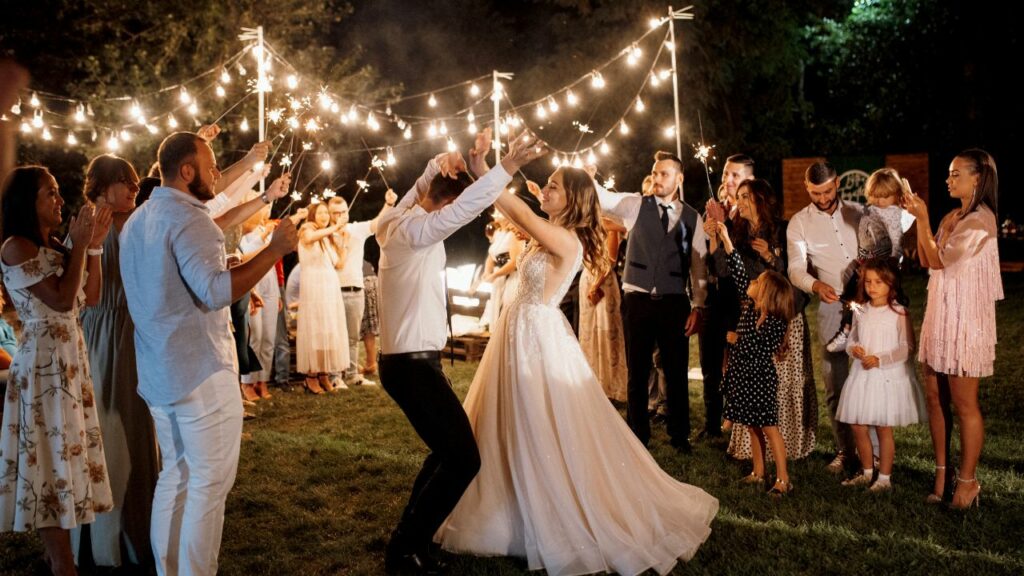
Answers to the most frequently asked questions about wedding speeches
How do you start a wedding speech?
Starting a wedding speech in a captivating way is crucial to capturing your audience's attention from the very first seconds. A good start can be a meaningful quote, a light-hearted anecdote or a rhetorical question that engages guests. For example, you could start with: "Why are we all gathered here today?" This immediately grabs attention and introduces the theme of love and marriage.
How to make a touching speech?
To create a touching speech, focus on the sincerity and authenticity of your words. Tell personal stories or memories you share with the bride and groom that illustrate their love and uniqueness. Express your emotions honestly, showing how you really feel about the couple and their union.
How to make an original speech?
An original speech breaks away from the usual clichés and offers a unique perspective on the couple or the wedding experience. Consider incorporating elements that are specifically meaningful to the bride and groom, such as references to their favorite song, inside jokes or key moments in their relationship that others might not know about.
What are the best opening and introductory words for a wedding ceremony?
The best opening words for a wedding ceremony are those that reflect the joy and importance of the occasion. A good opening might be, "We are here today to celebrate not only the union of [Name] and [Name], but also the love they share, which is the true foundation of their marriage."
How to finish a wedding speech?
Ending a wedding speech on a positive and inspiring note is essential. Conclude with personal wishes for the bride and groom's happiness, or with a quote about love and marriage that resonates with the day's theme. For example, "May every day you spend together be as joyful and fulfilling as this one."
What's the best way to start a speech?
To begin a speech, you could use phrases like: "Dear guests, we are gathered on this joyous day to..." or "It is with great pleasure that I speak to you today..."
What should be said at a wedding ceremony?
At a wedding ceremony, it's important to talk about commitment, love and mutual support. Highlight the qualities of the couple, their journey together to date and their hopes for the future.
What to say at the start of a marriage
At the start of a wedding, it's appropriate to greet and thank guests for attending. You can begin with: "We are honored to have you here today to share this very special moment..."
How do you write a welcome speech for a wedding?
To write a wedding welcome speech, start by expressing your joy and gratitude to the guests for attending. Mention how each guest contributes to making the day even more special for the bride and groom. Add a personal touch by sharing a short anecdote about the couple.
What should the bride and groom say in their wedding speech?
The bride and groom should express gratitude to their families and friends for their support, share their feelings for each other, and thank their guests for coming to celebrate this moment with them. It's also an opportunity to express hopes and dreams for their life together.


